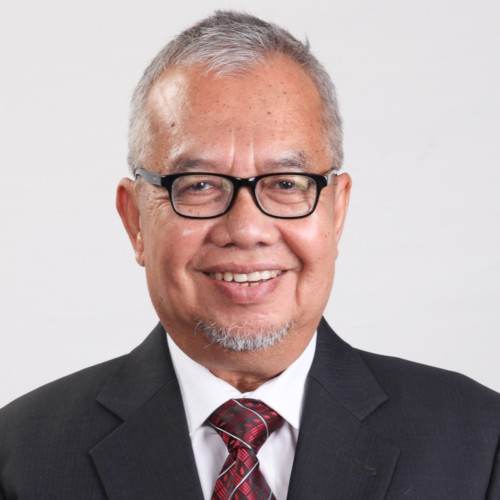By Professor Dato Dr Ahmad Ibrahim
In an increasingly fragmented world, the profound commonalities between nations offer a refreshing narrative. Among the most compelling stories of shared destiny is the relationship between Brazil and Malaysia—two nations separated by vast oceans but united by striking parallels. Though one lies in South America and the other in Southeast Asia, both countries exemplify how emerging powers can forge paths based on social harmony, sustainable development, and advocacy for the Global South. Their similarities provide a blueprint for South-South cooperation in the 21st century. The leaders of both nations recently pledged to work together for a “reinvigorated multilateral system” during the 2024 G20 Summit. The diplomatic relationship between Brazil and Malaysia, established 65 years ago, has evolved into a robust partnership grounded in mutual respect and shared objectives.

Beyond bilateral engagement, Brazil and Malaysia have frequently found themselves aligned on the global stage. Both nations have demonstrated commitment to multilateralism and peaceful conflict resolution, with relations characterized as “neutral” and with minimal potential for conflict. They share similar views on the need for reformed global governance institutions that better represent emerging economies and the Global South. The economic landscapes of Brazil and Malaysia reveal remarkable convergences despite their geographical separation. Both countries have emerged as regional economic powerhouses—Brazil in South America and Malaysia in Southeast Asia. Brazil and Malaysia have developed significant trade relationships, while Malaysian companies like Petronas have invested substantially in Brazil’s energy sector. The Brazilian mining giant Vale has established significant operations in Malaysia, including an iron ore transfer center that enhances Malaysia’s role in global commodity chains. Of course the true home of our natural rubber is Brazil!
Brazilian investments in Malaysia have reached substantial levels. These investments span multiple sectors, including manufacturing, mining, and technology, demonstrating confidence in Malaysia’s economic future. Similarly, Malaysian companies have increasingly looked to Brazil as a gateway to South American markets. Both nations face similar economic challenges. According to comparative data, both countries maintain mixed economies with significant government involvement in strategic sectors. Despite these challenges, both economies have demonstrated remarkable resilience. They have diversified their economic bases beyond traditional agriculture and commodity exports toward manufacturing, services, and technology sectors.
As nations endowed with extraordinary natural resources, Brazil and Malaysia share similar opportunities and challenges related to environmental management and sustainable development. Both countries are classified as megadiverse nations, hosting significant portions of the world’s biodiversity within their territories. Brazil’s Amazon rainforest and Malaysia’s rainforests in Borneo and Peninsular Malaysia represent globally critical carbon sinks and biodiversity hotspots. This shared ecological significance comes with common responsibilities and challenges related to deforestation, sustainable development, and balancing economic growth with conservation imperatives. The two countries have faced similar international pressures regarding their environmental policies, particularly around deforestation and land use changes associated with agricultural expansion, soybean in Brazil and oil palm here. Both have experienced tensions between development needs and conservation priorities, seeking to find sustainable pathways that address poverty and inequality while preserving critical ecosystems.
Brazil and Malaysia have both made significant commitments to renewable energy development, with Brazil pioneering biofuel production from sugarcane and Malaysia developing biofuel from palm oil. This parallel focus on biofuels has created opportunities for knowledge exchange and joint research initiatives, though both face similar criticisms about the environmental impacts of their biofuel industries. Both countries have also implemented policies to reduce carbon emissions and promote sustainable development. The numerous commonalities between Brazil and Malaysia provide a strong foundation for enhanced future cooperation across multiple domains. Malaysia’s expertise in broadband internet expansion could benefit Brazil’s plans to improve digital connectivity nationwide. Conversely, Brazil’s advances in agricultural technology and deep-water oil exploration could support Malaysia’s economic diversification efforts. The complementary strengths of their technology sectors suggest significant potential for joint ventures and knowledge sharing that could accelerate innovation in both countries.
Perhaps most significantly, Brazil and Malaysia can leverage their shared perspectives to advocate for reforms in global governance institutions. Their similar positions on many international issues—from trade rules to climate finance—provide a platform for coordinated diplomacy that amplifies the voices of middle powers and the Global South. This collaboration has become increasingly important in contexts like the G20, where both countries have argued for more inclusive decision-making processes that reflect 21st-century realities rather than post-World War II power distributions.
The surprising commonalities between Brazil and Malaysia—from their development challenges and environmental responsibilities—reveal the potential for a new type of international partnership based on shared experiences rather than mere geographic proximity. There is powerful potential in working together for a more equitable, just, democratic, and balanced multipolar world order.

The author is affiliated with the Tan Sri Omar Centre for STI Policy Studies at UCSI University and is an Adjunct Professor at the Ungku Aziz Centre for Development Studies, Universiti Malaya.
